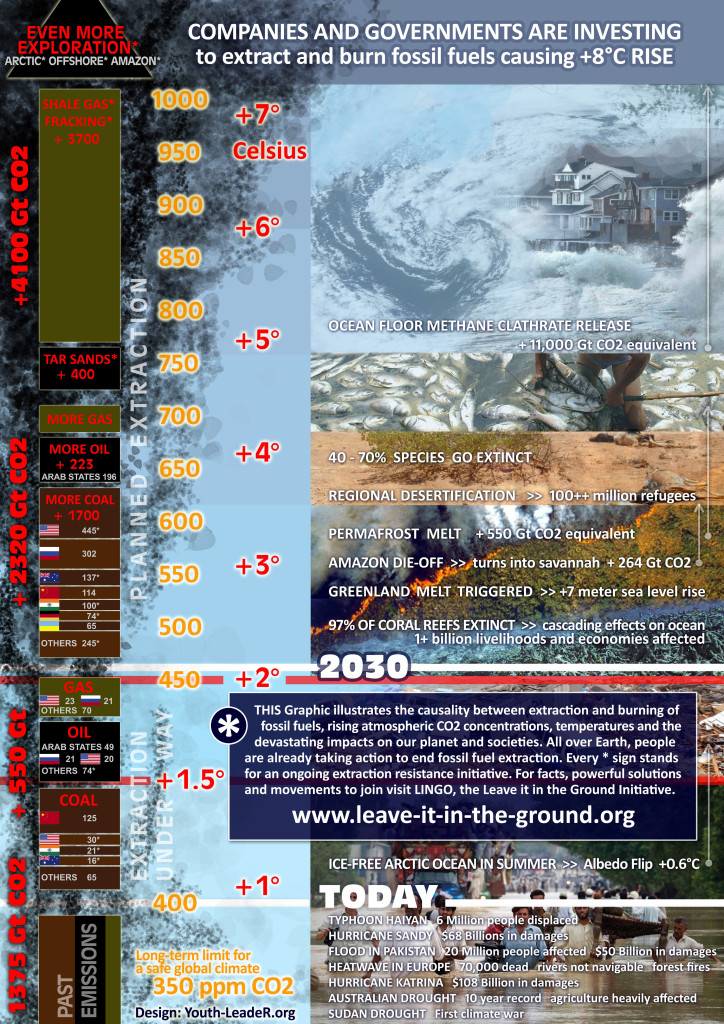 The Leave it in the Ground Initiative (LINGO) promotes the simple principle that we should “leave fossil fuels in the ground and learn to live without them”, and they believe that this can guide us out of the current climate crisis. In this short piece we hear from Kjell Kühne, who set up LINGO in 2011 during the climate talks at COP 17 in Durban, South Africa.
The Leave it in the Ground Initiative (LINGO) promotes the simple principle that we should “leave fossil fuels in the ground and learn to live without them”, and they believe that this can guide us out of the current climate crisis. In this short piece we hear from Kjell Kühne, who set up LINGO in 2011 during the climate talks at COP 17 in Durban, South Africa.
Why did you join the Rapid Transition Alliance?
Because the framing of the task as a rapid transition is very helpful. Mainstream thinking is that overcoming the fossil fuel age will take many decades. We disagree. It must be done very quickly – and it can be. We hope to join others in inspiring each other to come up with viable paths for this huge challenge humanity faces today.
What for you is the biggest challenge of rapid transition?
The challenge is mostly social and political, not so much technological. We see the dominance of the interests of the fossil fuel industry, and how the political system works to keep the status quo as the key inertia to overcome.

Watch the explanatory video here.
What is your organisation doing to encourage rapid transition?
We have identified a number of “game changers” for the fossil fuel industry that can open the door for a rapid transition. These include using the power of central banks, suing carbon majors for compensation; redesigning the way our economy works; and citizens getting disobedient and blocking fossil fuel infrastructure. There are several high-leverage strategies to kick-start and accelerate this transition.
What is your favourite example of rapid transition?
I like to point to three examples:
1) The “Special Period” in Cuba, which was suddenly cut off oil supplies from the collapsing socialist camp in the early 1990s and within a few years managed to revamp its transportation system (to more walking, cycling and innovative public transport) and food system (to more urban and largely organic agriculture, less meat) – and life expectancy went up over that period.
2) The experience of Pokemon Go! which managed to mobilize millions of young people to get up from the sofa and go out of their way in a question of weeks. Imagine if instead of catching Pokemons, these people would be blocking fossil fuel infrastructure! This is happening in the Climate Games, already, but on a smaller scale. Think Pokemon Go! and Climate Games together, and we can transition in weeks, not decades! 😉
3) Unicorn companies, those start-ups that are worth more than a billion dollars, have multiplied over the past years. Think Airbnb, Twitter, Uber, Facebook. In our networked world, a few years are enough to create something completely new and take the world by storm. We should harness these creative forces for overcoming the climate crisis – and other crises.
What one thing would best help the task of rapid transition?
Top down: A serious conversation among the world’s governments about bringing fossil fuel extraction plans in line with the Paris Agreement temperature targets.
